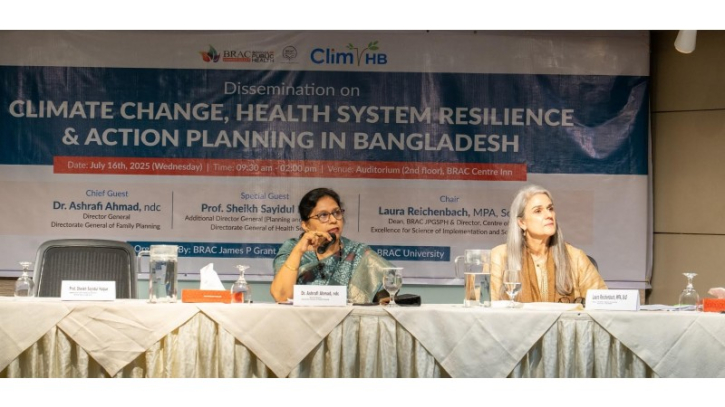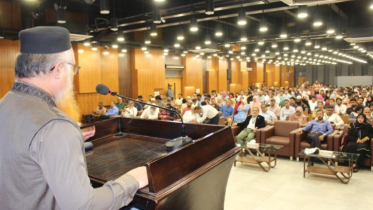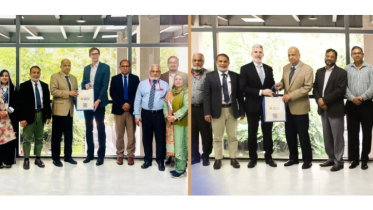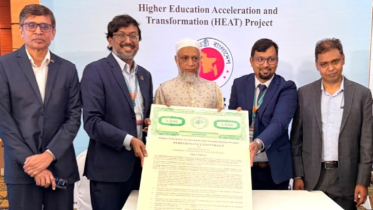
BRAC JPGSPH shares new findings
The BRAC James P Grant School of Public Health (BRAC JPGSPH) of BRAC University organized a workshop at BRAC Centre Inn, Dhaka recently to share findings of a “Climate Change, Migration and Health Systems Resilience in Some Selected Areas of Haiti and Bangladesh” (ClimHB) project.
Led by the Centre of Excellence for Science of Implementation and Scale-Up (CoE-SISU) of BRAC JPGSPH, the ClimHB project analyzed how climate-induced migration affects access to health services and the capacity of public health systems to respond to shocks.
In the process, the project analyzed empirical data from Haiti and Bangladesh and combined a “Levesque model” of healthcare access with the Department for International Development's (DFID) resilience framework.
The Levesque model is used to understand healthcare access examining the interplay among healthcare systems, individuals and populations influencing access.
The studies in Bangladesh were focused in sub-districts like Tala under Satkhira.
Key findings indicated that during climate disasters such as floods and cyclones, community members frequently avoid public health facilities due to barriers such as cost, distance, and perceived service quality.
Health workers, meanwhile, face systemic and operational constraints that hinder continuity of care during crises.
All in all, the project developed and validated a unique conceptual framework underscoring a dynamic, interconnected approach to resilience.
It offers significant potential to inform strategic planning and decision-making at all levels of the health system, though operationalization for policymakers remains an ongoing challenge.
“The intersection of climate change, health, and mobility requires a systems-thinking approach,” said Laura Reichenbach, Dean of BRAC JPGSPH and Director of CoE-SISU.
“The ClimHB framework equips us to better understand how climate shocks and migration pressures influence healthcare access and delivery,” she said while chairing the workshop titled “Climate Change, Health System Resilience & Action Planning in Bangladesh” on 16 July 2025.
“To build a climate-resilient health system, we must address not only infrastructure but also social vulnerabilities like early marriage and unplanned pregnancies,” said Dr Ashrafi Ahmad, Director General, Directorate General of Family Planning (DGFP), as chief guest.
“The government of Bangladesh is committed to working with partners to ensure equitable access to care, even in times of crisis,” she said.
Prof Sheikh Sayidul Haque, Additional Director General (Planning & Development), Directorate General of Health Services, was present as the special guest.


























